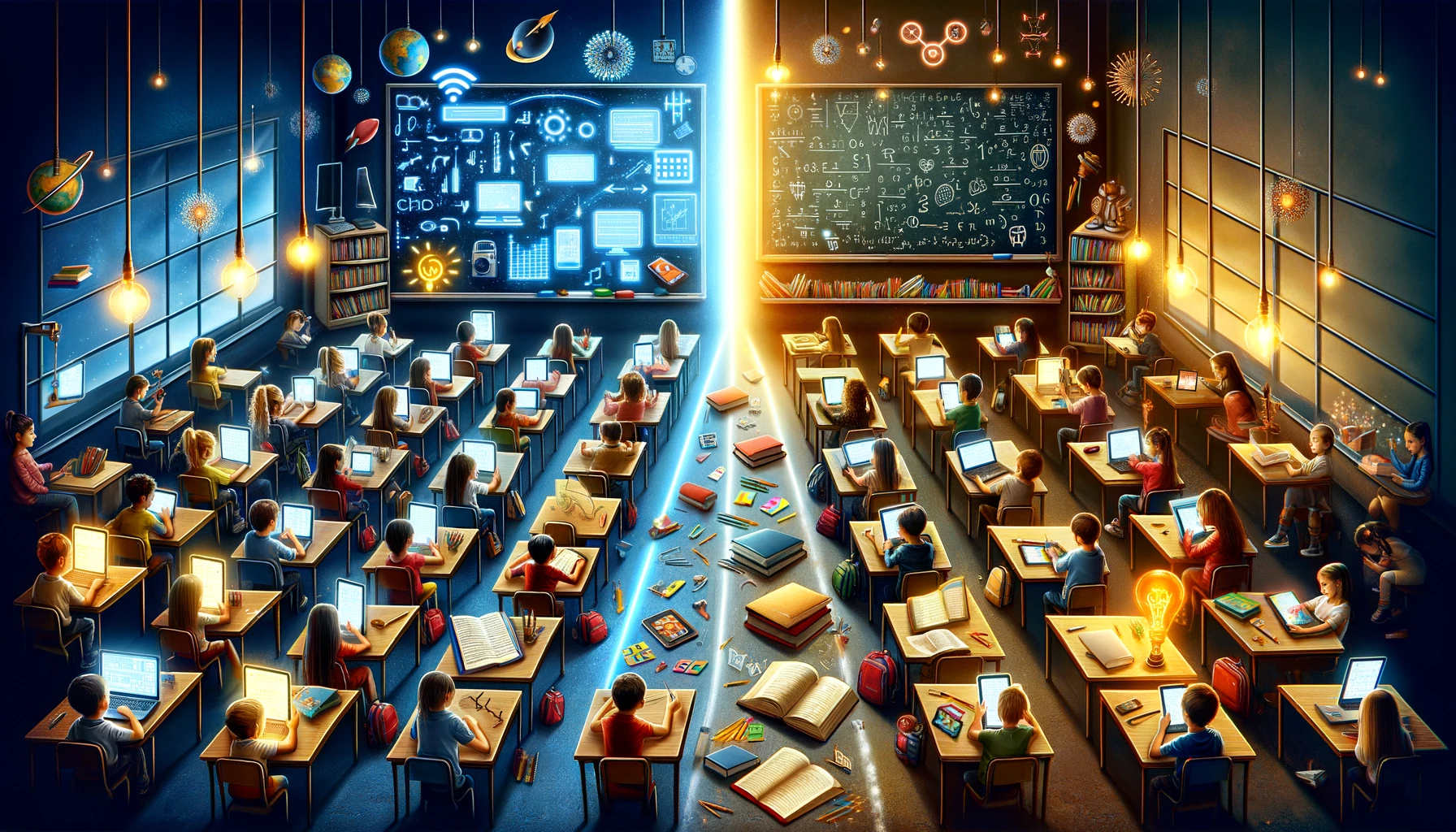It is an epidemic silently raging through our classrooms. While Dutch youngsters swipe faster than their shadows and with a flair that makes their parents dizzy, they are getting worse at reading and writing every year. They have the best digital skills in Europe but are now among the worst readers and writers in developed countries.
This paradox foreshadows a future where a digitally proficient but low-literate population can no longer communicate effectively and make sense of the world without ‘help’ from commercial tech companies on which it is increasingly dependent.
Tech optimists don’t think this is a problem. ‘Why learn to spell when autocorrect does it for us?’ they ask. ‘Why learn mental arithmetic when there are apps that can do it faster?’ they app. And at the pool to a chatbot: ‘Why take swimming lessons when there are also video swimming lessons?’
This perspective also resonates with the Dutch minister for primary and secondary education Mariëlle Paul, who believes digital skills are ‘at least’ as important as reading, writing and maths. According to columnist Jona van Loenen, it is even ‘not a problem that children are getting less and less good at reading’, as long as they can ‘understand digital tools’.
There is just one problem: people who are low-literate are three times more likely to develop insufficient digital skills. This shows that tech optimists overlook the fact that reading, writing and maths are not instrumental skills that you can outsource to an app or replace with digital skills. On the contrary: Being able to read, write and calculate well is the foundation of our human existence: the ability to think critically, analyse and communicate meaningfully with other people, and is precisely a prerequisite for learning and applying digital skills.
The consequences of nevertheless neglecting human skills are becoming increasingly clear. People who are low-literate live unhealthier, shorter lives, and earn less money. For them, the world becomes increasingly complex, incomprehensible and inaccessible. Without the skill to understand information, they surf the internet where they depend on commercial tech companies that, in exchange for their data, offer an oversimplified virtual reality ‘for free’.
Once they arrive on their algorithmic timeline, they meet influencers who receive a share of the tech company’s ad revenue to spread fake news and conspiracy theories that make more sense than the complex reality based on facts and nuances they cannot understand. And because expressing and understanding thoughts in words is a lot harder when you cannot read and write well, low literacy leads to misunderstandings, incomprehension, conflict and polarisation; exactly what we are seeing more and more of in our society.
It is therefore reckless to send children into that digital algorithmic world without first teaching them sufficient human skills. And by making digital skills “at least” as important as reading, writing and arithmetic, the circle of millions of low-literate people for whom words and numbers have little meaning continues to grow. This creates a population that no longer knows its laws and fundamental rights, does not understand invoices from companies, letters from the government and traffic signs, and is unable to participate in a debate or the democratic process on the basis of knowledge and facts. And because an illiterate population is also unable to read back important lessons from history, our history is reduced to simplistic, orally transmitted stories or, worse, forgotten altogether. This opens the door to authoritarian tendencies in politics and leads to the erosion of our democratic values.
How can we break this negative spiral, exacerbated by the combination of rising illiteracy and rampant tech-optimism?
Tech-optimists will say, ‘Build an app that protects us from disinformation and abuse by those in power’. I say, ‘Let’s re-equip children with the human skills to think critically, autonomously and independently, to be able to analyse and communicate meaningfully with other people.’ That doesn’t require an app; a return to basics will suffice: teach them to read, write and count.’
‘But how do we do that without an app?’ the tech-optimists ask.
‘By putting our devices away for a while and rediscovering that the most important lessons in life should not be downloaded but passed on,’ I reply.
This column was published today in Dutch by De Volkskrant.

Leave a Reply